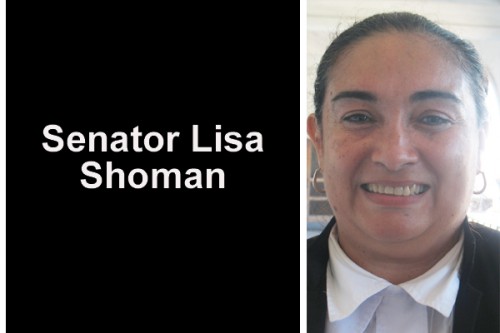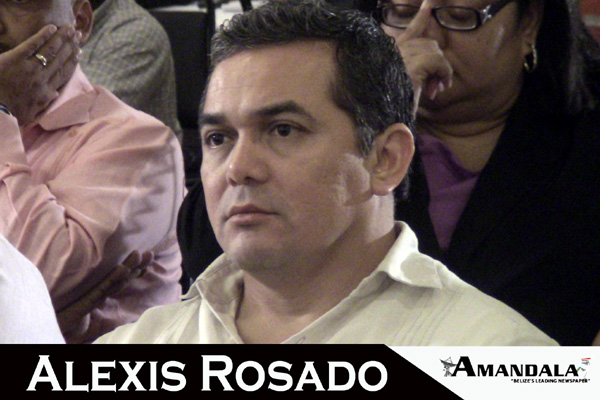BELIZE CITY, Thurs. May 21, 2015–The decision by the Government of Belize to proceed next Monday, May 25, with the signing of an amendment to the special agreement for the adjudication of the Belize-Guatemala differendum at the International Court of Justice (ICJ) at The Hague in The Netherlands has led to an unprecedented fallout with the Opposition, which has always been actively engaged in what had traditionally been a bi-partisan process.
Amandala spoke on Wednesday with Belize’s resident Ambassador in Guatemala, H.E. Alexis Rosado, who told us that the signing is scheduled to take place in Guatemala City on the morning of Monday, May 25, 2015, which will be observed in Belize as Sovereign’s Day, formerly Commonwealth Day. The Opposition has announced that it will stage a boycott.
Ambassador Rosado explained that two clauses will be amended. The first amendment will be to Article 7.2 of the special agreement. Rosado said that the amendment to Article 7.2 will not remove the option for both countries to hold simultaneous referenda but it will stipulate that the referenda can also be held separately in the countries, depending on the convenience of the parties.
Since Article 8 also makes reference to the simultaneous referenda, it will also be amended to clearly spell out that Guatemala cannot submit the case to the ICJ unless and until a vote by Belize’s electorate sanctions such a move, so the ICJ would only be able to hear the case if and when both parties approve, Rosado explained.
Currently, Article 8 of the compromis says that, “This Special Agreement shall be notified to the Registrar of the Court jointly or by either of the Parties within a month after referenda in both countries have approved submission of the dispute to the Court.”

Senator Lisa Shoman, who is the standing representative of the Leader of the Opposition in the Belize-Guatemala process, told our newspaper she will not attend the signing on Monday.
Shoman said that only last week while she was in Guyana, heading the electoral mission of the Organization of American States (OAS) in that country, she was contacted very informally by Stuart Leslie of the Referendum Unit to say that the Ministry wanted to know if Shoman would be accompanying them to Guatemala. She then requested that a formal note be written to her to explain what the meeting is about. She did subsequently get a note explaining the purpose but providing absolutely no details on the proposed amendments and no copy of the draft agreement.
“That is not usually the way they operate. I usually can count on a full briefing before I leave,” Shoman pointed out.
In a statement appearing elsewhere in this edition of Amandala, the PUP Secretariat explains that, “While the PUP has always been an active participant in all discussions, negotiations and meetings as part of a national bi-partisan approach to the Belize-Guatemala differendum, the Party has always done so on the condition that Belizeans must at all times be kept fully informed and consulted on all critical matters.”
An article appearing in Prensa Libre today said that on March 4 this year, Guatemala’s Foreign Ministry had announced publicly that the plan is to hold the referendum this year, during the second round of voting for the elections. However, this unilateral poll by Guatemala would have been impossible under the existing terms of the ICJ special agreement, which Belize and Guatemala signed in December 2008, requiring both Belize and Guatemala to proceed together on a mutually agreed date.
Senator Shoman told us that they have always operated on the premise that the matter of the Belize-Guatemala issue is never to get mixed up in electoral politics.
She also said that delinking the referenda in the countries—that is, allowing Guatemala to go before Belize rather than requiring both countries to go on an agreed date—was discouraged because the outcome of the vote in one country will influence the outcome of the vote in another country and they never wanted that to occur.
We asked Ambassador Rosado about the deviation from the decision to have the referenda simultaneously, and about the original rationale for having this included in the special agreement. He said that it was the Guatemalans who had been insisting on having a simultaneous vote and the Belize side was looking at the option of having them held separately. He said that it is not the first time that the Guatemalans have come up with the idea of having the referenda on different dates in both countries.
Last week, Prime Minister Dean Barrow told the media that the Guatemalans had asked Belize to go first, but Belize had indicated that it is not ready. It was after this that the Guatemalans proposed to go first, he said.
Rosado said that the Guatemalans are of the view that it is too costly for them to hold the ICJ referendum on its own. The last time the referendum was to be held in October 2013, their budget estimate ranged from US$30 million to US$60 million.
While the Ambassador cited cost savings as the primary impetus for Guatemala wanting to hold the referendum this November, he also noted that with the change in the presidency, the outgoing administration will not have to live through the results, and the new administration will be able to take the position that the people had already decided on the issue.
Shoman said that the fact that the ICJ referendum is now going to get caught up in the political race in what has become a very bad climate in Guatemala, makes matters worse.
Ambassador Rosado told us that the parties, Belize and Guatemala, have agreed in principle for the matter to be settled at the ICJ, subject to the will of the people on both sides of the border.
We asked Shoman whether she had seen a draft of the agreement which Elrington intends to sign, and she said that she hasn’t.
We asked Rosado what will happen in the event that Guatemala does not, after all, hold the ICJ referendum in November. He said that the parties would then return to “square one.”
Rosado told us that whereas it is too early to say if there will be a run-off for the 2015 presidential elections in November, meaning a second round of voting to determine who will take up the office, most of the elections there have required a second round of voting for presidency.
Rosado told us that the education campaign on the ICJ would likely kick off after the signing of the revised protocol to the special agreement. The Minister of Foreign Affairs will have received Cabinet sanction to sign the document, and afterwards, it will have to go to Congress in Guatemala for ratification before the referendum question can be put on the ballot.
Article 3 of the original special agreement says, “The question to be submitted to referenda shall be: ‘Do you agree that any legal claim of Guatemala against Belize relating to land and insular territories and to any maritime areas pertaining to these territories should be submitted to the International Court of Justice for final settlement and that it determine finally the boundaries of the respective territories and areas of the Parties?’”
Whereas in Belize the Opposition People’s United Party has withdrawn its support for the ICJ process, as well as the amendment of the special agreement, on the Guatemala side, it appears that they remain in consensus.
When the original agreement was penned in 2008, it also had to go through the Guatemalan Congress, but Rosado noted that it was one of the rare occasions that there was unanimous support.
“The various political parties [in Guatemala] seem to agree that the only way this will ever be resolved is at the ICJ,” Rosado told us.
Shoman said that she could not support the move under the circumstances—the fact that the people had not been consulted and the fact that the Ministry had simply made a declaration that they were going without informing the Leader of the Opposition that their decision to amend the special agreement was final.
She is convinced that the signing would not benefit Belize but Guatemala, based on the rationale given, that it is being amended to save Guatemala money.
Is there any way of stopping the Government of Belize from proceeding with the signing? We put this question to her, and she said that there is no way of stopping such a move—not if Government is determined to amend the special agreement, and they seem to be from all indications, she added.
“I think the Belizean people have spoken—which is to say that they don’t agree with it,” said Shoman, adding that the signing in Guatemala City is being done for reasons that have nothing to do with what is good and convenient for Belize, and is of no advantage for Belize—contrary to Barrow’s assertions.
Last week, he told the media that “…if Guatemalans go first, that strikes me as an advantage for Belize.”
“Saving costs for Guatemala is an advantage for Belize? I don’t see that as being in Belize’s advantage,” Shoman told us.
So what next? Shoman said that the Ministry of Foreign Affairs will have to answer that question, since no plan has been shared with either her or the Leader of the Opposition to explain what is to happen.
Shoman concurred that this is the first time that the Opposition will not participate in what has always been a bilateral process in dealing with the Belize-Guatemala issue; however, she noted that this is not the first time that the Opposition has not been properly consulted. She pointed to the signing of the 13 agreements between Belize and Guatemala in Placencia last December.
“Even when the 13 agreements were being reviewed last year,” she said, “we went on the basis, on the clear understanding, that the Government would have consulted Belizeans before it happened. It did not happen nor was I invited to the signing. We made no political capital out of that. Now, I start to ask myself what is the value of the bipartisan approach to the UDP,” Shoman told us.
She said that with regard to the latest decision by the Government to agree to the amendment of the ICJ compromis, the Prime Minister had called the Leader of the Opposition to inform him of what they were contemplating. That was over a month ago, and Shoman said that while both she and the Leader of the Opposition had been expecting to get more feedback on the matter before a final decision was taken, that never happened. She said that the most important thing is what is good for the nation.
“We can’t operate in an atmosphere where the national interest is not the first thing on the agenda,” she said.
Amandala tried to reach Prime Minister Barrow for comment on the PUP Secretariat’s announcement that it will boycott Monday’s signing, but when we reached him this morning, he indicated to us that he could not talk because he was in a meeting. Two subsequent attempts to reach him proved futile.

